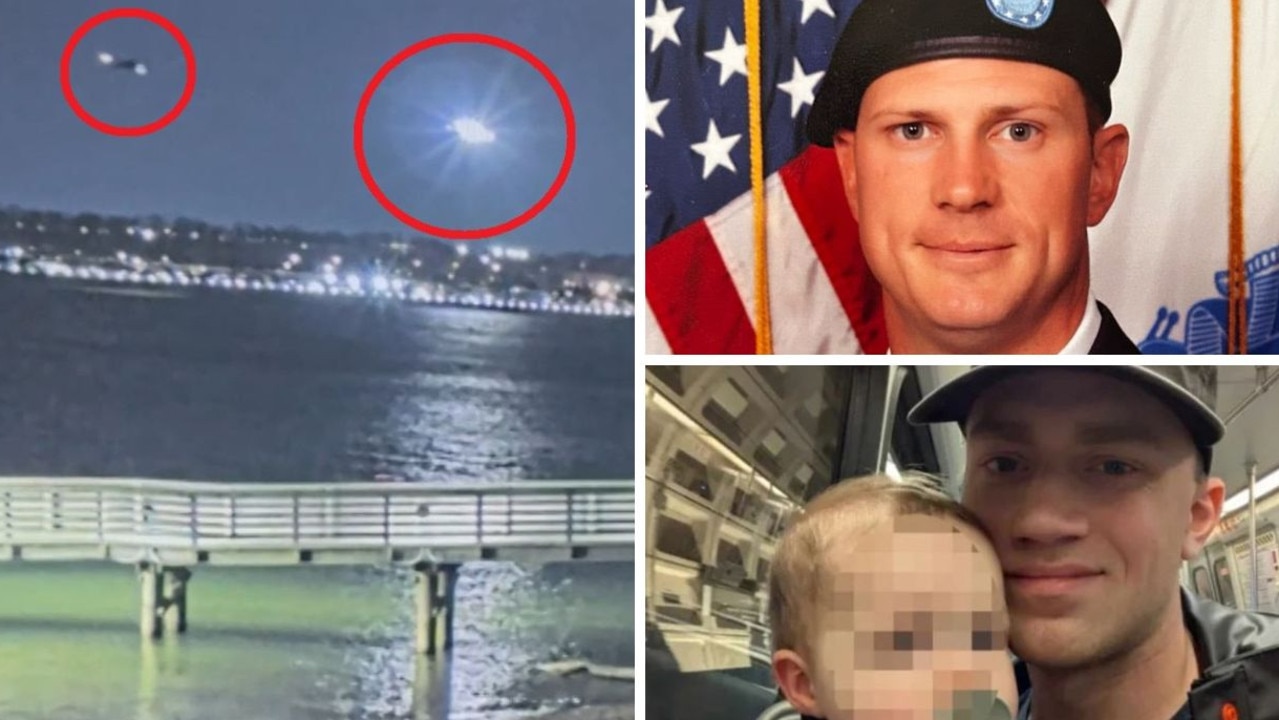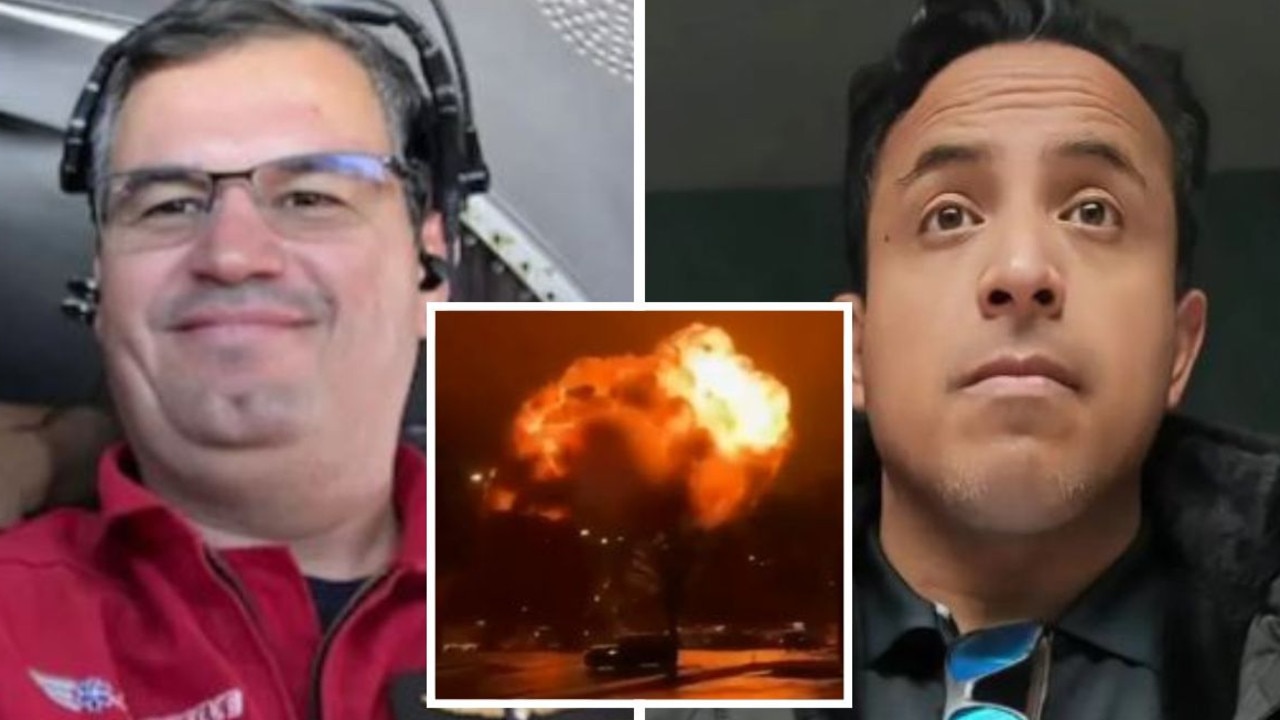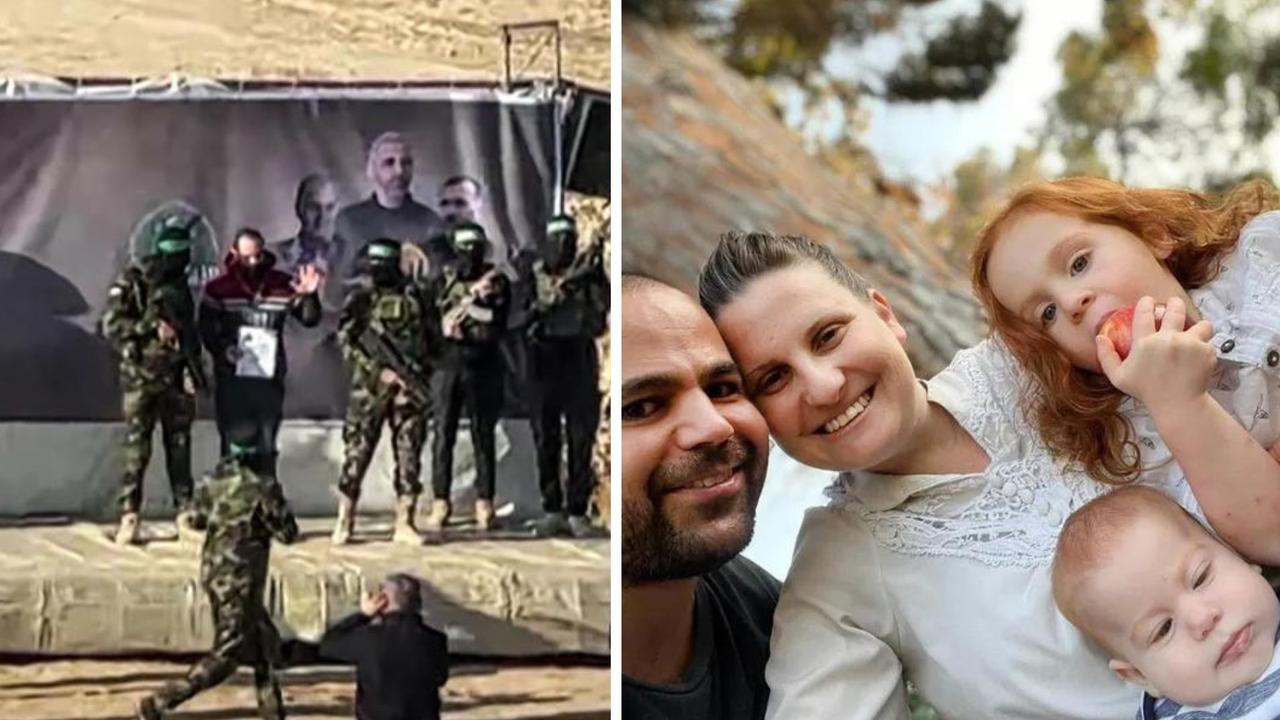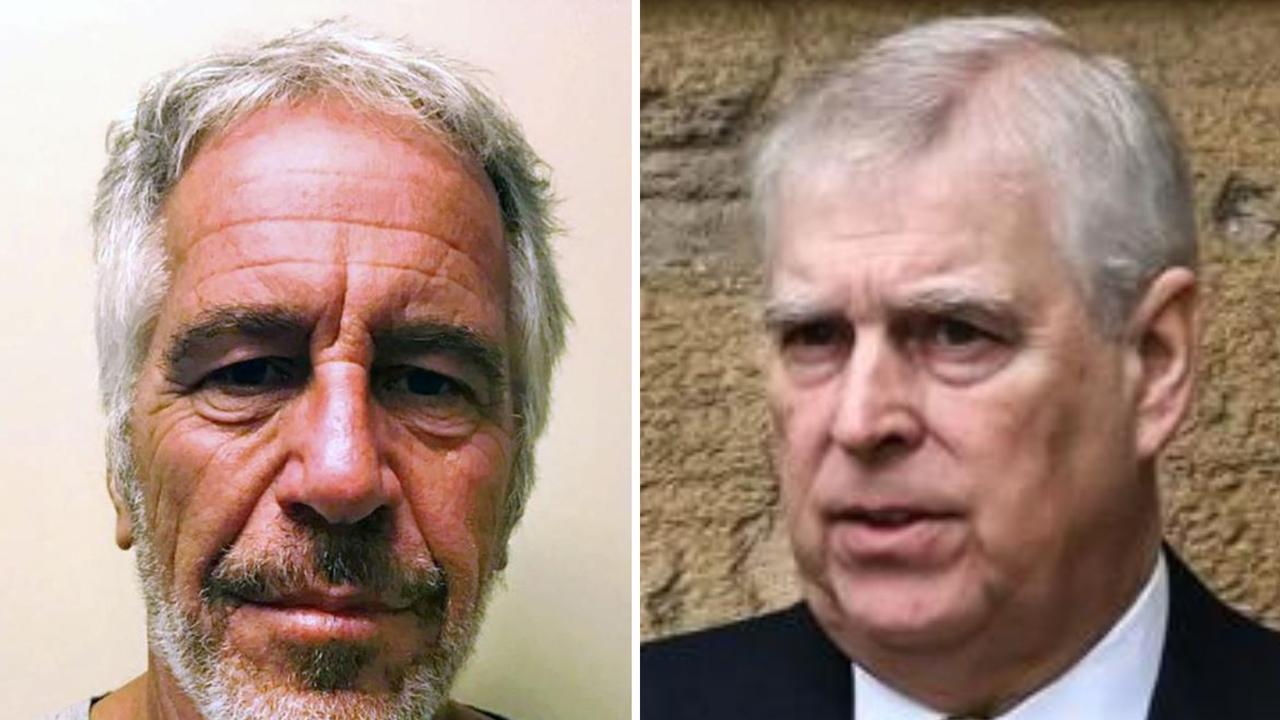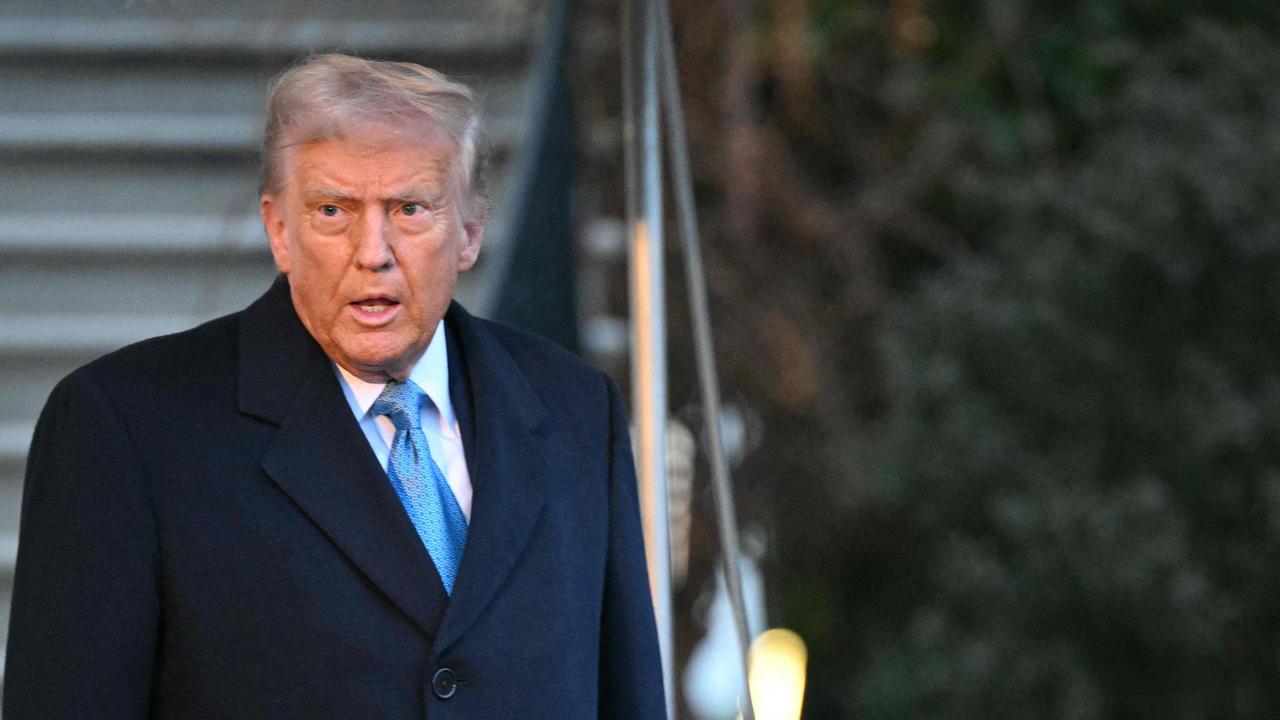Donald Trump hush money case: Former president pleads not guilty, what next?
Donald Trump is essentially accused of orchestrating a “grand scheme to undermine the democratic process.” See what happens next.
World
Don't miss out on the headlines from World. Followed categories will be added to My News.
Donald Trump pleaded not guilty to 34 felony counts inside a packed New York courtroom on Wednesday, in a dramatic hearing that transfixed the nation and began the countdown to the first ever criminal trial of an American president.
After a stern glare to waiting press, Mr Trump spent about an hour inside a Manhattan courtroom where he voluntarily surrendered to face charges over hush money payments that have already up-ended the 2024 White House race in which he leads the Republican field.
“Not guilty,” the 76-year-old former president said in a clear voice inside the courtroom, where he sat with his shoulders up to his ears, at times looking annoyed but mostly listening cooperatively.
Mr Trump denied all the charges, which related to payments to keep people quiet including over an alleged affair with an adult film actress. He was released from custody without any restrictions.
WHAT ARE THE NEXT LEGAL STEPS?
The judge gave Mr Trump’s lawyers until August 8 to file motions in the case and the prosecution then needs to respond by September 19.
Judge Juan Merchan said he will rule on the motions at the next in-person hearing, scheduled for December 4, with an initial trial date in January 2024.
Bennett Gershman, a law professor at Pace University, said Mr Trump is essentially accused of orchestrating a “grand scheme to undermine the democratic process.”
“In other words, by covering up his salacious sexual misconduct through multiple false records … he succeeded in hiding truthful information which if it were made public would have seriously damaged his quest for the presidency.”
Ellen Yaroshefsky, a law professor at Hofstra University, said prosecutors may be faced with “somewhat of a hurdle to prove that the false business records were with intent to influence the election.”
One potential hurdle for prosecutors could be Cohen, Mr Trump’s former lawyer, whose credibility as a witness is certain to come under attack because he is now a convicted felon.
There is also a precedent of sorts.
John Edwards, who twice sought the Democratic presidential nomination, was put on trial in 2012, accused of campaign finance violations for making hush-money payments to a mistress.
The jury deadlocked and the Justice Department opted not to retry the case.
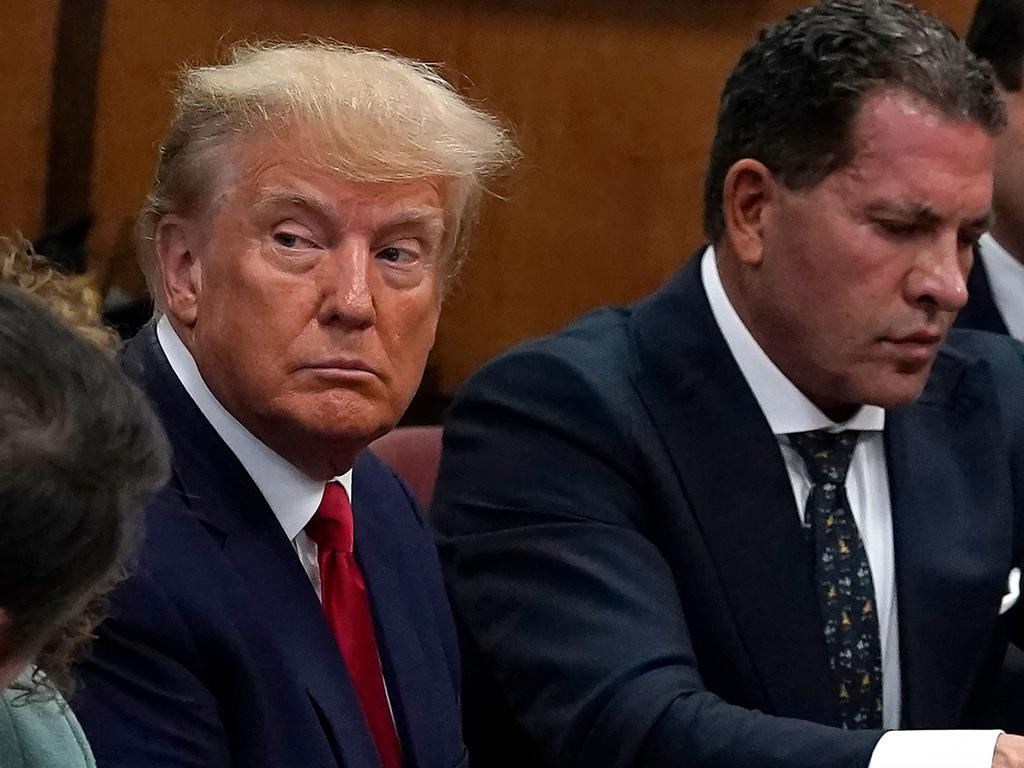
WHAT OTHER LEGAL WOES DOES TRUMP FACE?
Mr Trump is facing legal scrutiny beyond the Big Apple.
A special counsel is looking into his role in the January 6, 2021 assault on Congress by his supporters.
Special counsel Jack Smith is also investigating a cache of classified documents retained by Mr Trump after he left office.
The documents were recovered in an FBI raid on Trump’s Mar-a-Lago residence in Florida in August 2022.
A district attorney in Georgia is also investigating Mr Trump’s attempt to overturn the results of the presidential election in the southern state.
WHAT ARE THE MOST SERIOUS CHARGES?
The biggest headache for Mr Trump revolves around the investigation of $US130,000 paid to adult film actress Stormy Daniels just days before his election win.
Mr Trump’s former lawyer Michael Cohen, who has turned against his ex-boss, says he arranged the payment in exchange for silence about a tryst Ms Daniels says she had with Mr Trump in 2006.
Mr Trump for years rejoiced in his reputation as a playboy but he denied the affair with Ms Daniels, which would have occurred just after his third wife Melania gave birth.
Prosecutors also faulted Mr Trump over a $US30,000 payment made to keep quiet a doorman at Trump Tower over allegations the former president had a child out of wedlock.
A final case involved a woman who received $US150,000 from a US tabloid in exchange for silence about an alleged sexual relationship with Mr Trump.
WHY WAS TRUMP NOT HAND-CUFFED?
Defence lawyers and prosecutors negotiated Mr Trump’s “self-surrender” to the Manhattan District Attorney’s office, so there was no formal extradition from his home in the US state of Florida.
Once arrested, it’s standard procedure in New York for a defendant to be read his Miranda warning, “the right to remain silent”, although he didn’t have his fingerprints or mugshot taken. Usually, they are handcuffed and taken to court for the arraignment hearing.
However, prosecutors agreed not to handcuff the former president.
Trump has since landed back home in Florida after flying in his private jet.

WHAT HAPPENED AFTER TRUMP LEFT COURT?
Mr Trump was in the courtroom for about one hour, and pleaded not guilty to 34 counts of falsifying business records outlined in the indictment that was unsealed by Judge Juan Merchan.
He declined to speak to the media, despite previous reports that he would address the crowd after appearing before the judge.
Mr Trump however did deliver a post-arraignment speech at his Florida estate, Mar-a-Lago, at 8.15pm local time (10.15am AEST).
He declared: “The only crime that I have committed is to fearlessly defend our nation from those who seek to destroy it.”
WHEN WILL TRUMP GO TO TRIAL?
Manhattan criminal court usually takes more than a year for cases to go to trial, landing the highly publicised – and televised – and hearing smack bang in the middle of the 2024 presidential campaign.
While Mr Trump’s legal team wants to expedite the case, the process could get bogged down in a lengthy jury selection back and forth. Finding a panel of 12 unbiased peers in the highly Democrat-biased city of Manhattan, could be an exhausting process.
Trump’s lawyers could seek to have the trial moved to a more Republican-leaning burrow, like Staten Island.
CAN TRUMP GO TO PRISON?
If convicted, the charges carry a maximum prison sentence of up to four years. However, as Trump is a former president it is required, by law, that he’s protected at all times by the US Secret Service. That puts any custodial sentence in uncharted territory, likely requiring the conversion of existing facilities to accommodate federal agents, the creation of a new facility for that sole purpose, or a house arrest compromise.
CAN TRUMP RUN IN 2024 FROM PRISON?
Yes. The constitution does not prevent any US citizen from running for federal office regardless of whether they’re facing charges or convicted and serving a prison sentence. While detention would prevent Trump from travelling the country to campaign, such a low-visibility strategy was proved successful by the 2020 election win of Joe Biden.
More Coverage
Originally published as Donald Trump hush money case: Former president pleads not guilty, what next?



